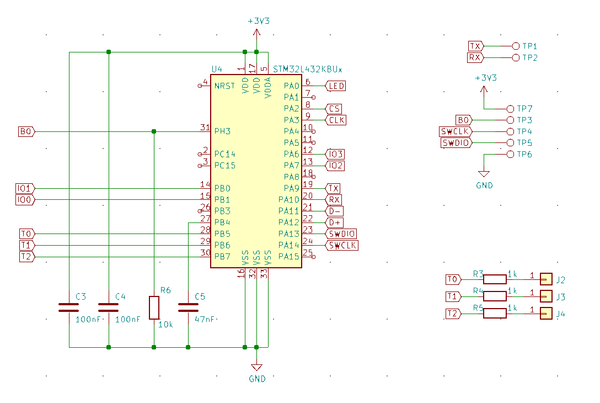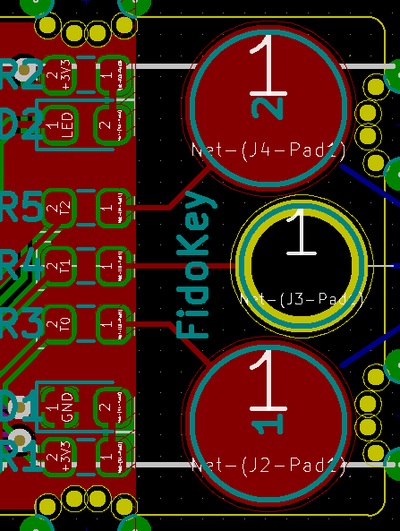Difference between revisions of "STM32 Touch Sensors"
Jump to navigation
Jump to search
| Line 11: | Line 11: | ||
The circuitry involved in the touch sensing is the C5 and the actual touch pads J2, J3 and J4 and their accompanying resistors. | The circuitry involved in the touch sensing is the C5 and the actual touch pads J2, J3 and J4 and their accompanying resistors. | ||
| + | |||
| + | Layout wise I did two different approaches: | ||
| + | |||
| + | [[File:Touch PCB Layout.png|400px]] | ||
| + | |||
| + | The top and bottom touch pads are just big single sided SMD pads which is covered by soldermask. The center "hole" is a big through hole pad. | ||
== Resources == | == Resources == | ||
Revision as of 04:07, 28 May 2021
Only some STM32 processors have touch sensor circuitry built in, most noticeable the STM32Lxx series.
Hardware Example
As part of another project I was using an STM32L432 MCU and while doing that design I decided to add 3 touch sensors.
The circuitry involved in the touch sensing is the C5 and the actual touch pads J2, J3 and J4 and their accompanying resistors.
Layout wise I did two different approaches:
The top and bottom touch pads are just big single sided SMD pads which is covered by soldermask. The center "hole" is a big through hole pad.
Resources
- Getting started with touch sensing control on STM32 microcontrollers
- Developing applications on STM32Cube with STMTouch touch sensing library
- Tuning a touch sensing application on MCUs
- Design with surface sensors for touch sensing applications on MCUs
- Improve conducted noise robustness for touch sensing applications on MCUs
- Sampling capacitor selection guide for touch sensing applications on MCUs
- ESD considerations for touch sensing applications on MCUs


